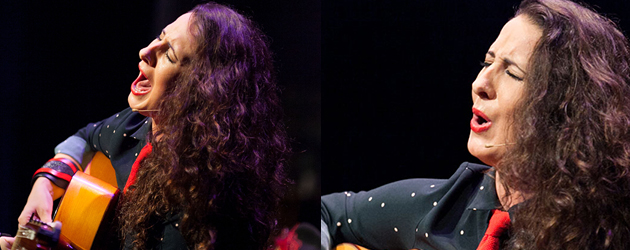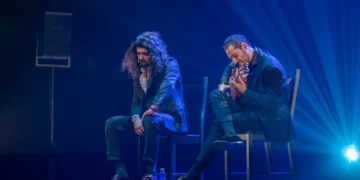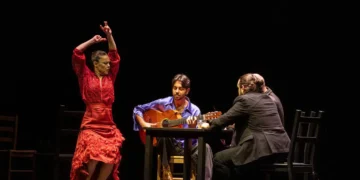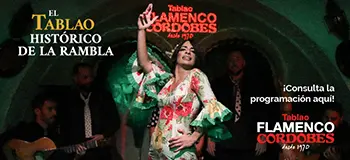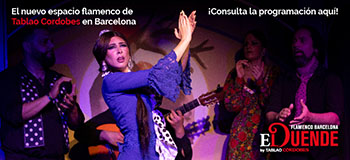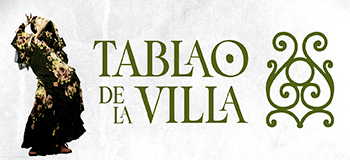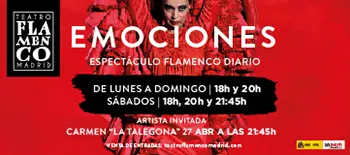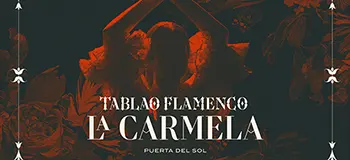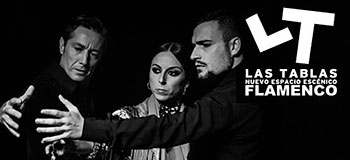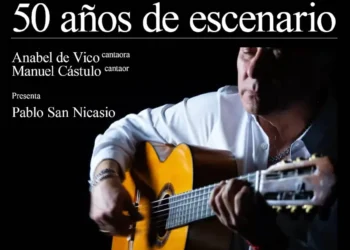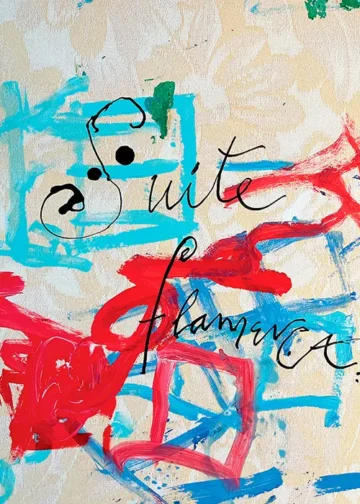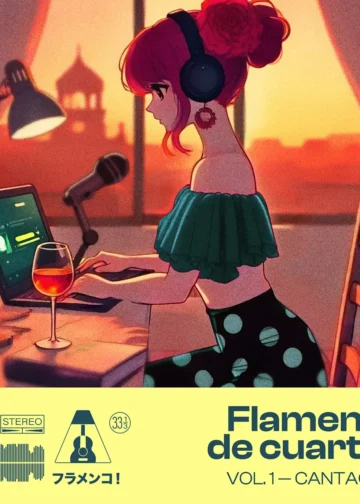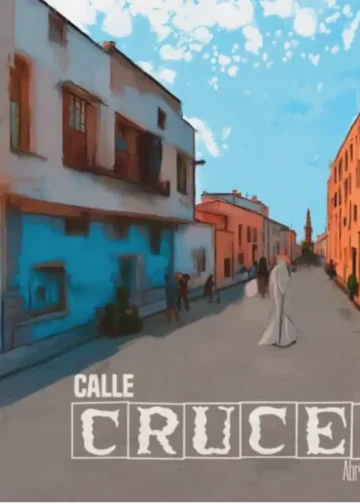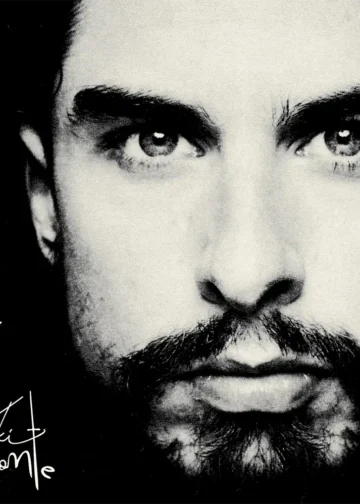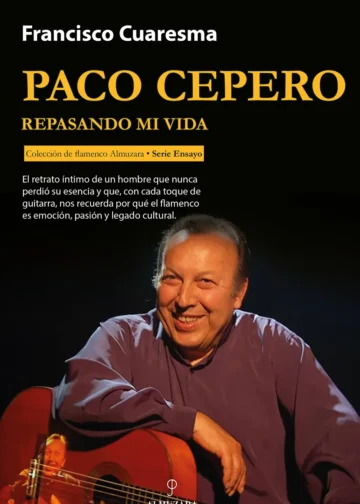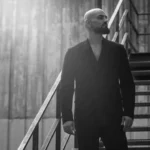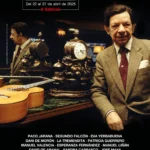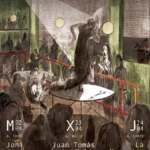Silvia Cruz Lapeña
The singer from Triana presented Fatum on June 27th at Madrid's Suma Flamenca.
“My current artistic moment comes down to showing off less, and enjoying more”
She's 30 years old and claims to be in a different moment from just two years ago when she recorded Fatum, the record she presented June 27th in Madrid's Suma Flamenca. Her professional name comes from her father, José «El Tremendo», also a singer, and the daughter explains they gave him that name because he was «terrible, couldn't be still for a single moment». The artistic quest of this woman from Triana roils on the inside, because on the outside she laughs easily and appears quite laidback. La Tremendita not only sings; she also plays guitar, electric bass and piano, in addition to writing verses and directing shows. Aside from Fatum, she has two other shows currently touring: Qasida, in which she joins forces with Iranian singer Mohammad Motamedi and shows her interest in music from other latitudes; and Afectos, created in collaboration with dancer Rocío Molina.

«Fatum» is a varied recording in which we can hear diverse sounds and different pieces. How do you put that on stage?
On the record there is a greater guitar presence, but in this concert pianist Cristian de Moret takes center stage. I sing, of course, but I also demonstrate my facet as a musician playing the guitar and the electric bass. The show offers everything that's on the record, but it has another feel because I'm in a different artistic moment from when the recording was made.
And how do you define that artistic moment?
Well, when I began work on Fatum, I had a great deal of information, lots of ideas, and I wanted to put all that material on my record. The result was a bombardment of highly produced pieces, others recorded just as they came out on the first try but where I put in a lot of things, and lots of percussion. Now I'm more interested in simplicity, I look for other spaces, other sounds. Even the cante on the record comes out different now. You could say that my current artistic moment comes down to showing off less, and enjoying more.
Are there any surprises in the live performance?
Of course. Every day is different: I'm at home, I try something, I hear a sound, I add an instrument… The show is always changing, there's always some novelty.
At what point in your life did you decide not to limit yourself to singing?
When I was 18. My father taught me a lot of discipline with the cante, I lived it with commitment, and at times it was traumatic. I participated in contests and flamenco associations, and he was very hard on me. The contests got me into a ball of nerves, for me, art can't be a competition, and not only that, but I needed to communicate certain things. I realized that I didn't even like the verses I was singing, and I didn't identify with them.
How did your father react when you decided to stop going to contests?
When I came of age, I told him I wasn't going to any more contests, and if he insisted, I would do something else entirely because it wasn't what I wanted. And he surprised me; he changed from being a very strict father, to letting me fly free. Now my father is just my father. There are times when he sees me play the electric bass and he tears his hair out, he doesn't always understand what I do, but he is supportive and proud, because he sees I do what I want, and I do it with responsibility.
What project are you working on now?
Right now I'm hard at work on my next recording, especially with the verses, but I can't tell you a lot because I'm in a conflictive moment right now. [Laughter]. It's normal during the creative process, I'm not concerned. I'm also doing something with Pablo Martin Jones, from whom I'm learning a lot, and I'm also trying things with my voice and the bass. And I'm still touring with Fatum, Afectos and Qasida! I never stop really.
You've got work, a company of your own and you surely have no complaints. But how is business going?
It's complicated, because everything is bad in general. I have the feeling we're very individualist. Starting with myself, because having my own record company, I do whatever I want, without asking anyone's permission. Social media allow me to see how my work is received, and let me be in contact with the general public. But I know the process of making a record is complicated, the expense is tremendous, and those of us who work in this sometimes feel very solitary when it comes to pushing our projects forward.
Name a singer who makes your hair stand on end…
El Pele.
And female voices?
Mayte Martín, Esperanza Fernández and Carmen Linares.
You had to think a long time to choose the women, but I see all the ones you name do classic flamenco. It's odd, you being so fond of trying new things.
It's that I'm classic in many ways! I like to try things, but I come from that kind of flamenco, I like it. It's something else if that's not enough for me, and I try other things. But that's the flamenco I like, it's where I come from an what I respect.
Are you not going to sing for dance any more?
It was great experience to do that, a wonderful learning experience, and I might do something else with dance, but it would have to be something specific that motivated me a lot. In general, it's not what I'm interested in, it's not what I like best of my profession.
What would you like to do that you haven't done yet?
[She thinks it over for a long time]. I can't think of anything. I know I have everything waiting to be done, that's the feeling I have, but I also know I'll be doing it little by little. I feel completely free when it comes to creating and interpreting, I suppose that's why I don't have great yearnings.
You don't seem as terrible as your nickname suggests. Why did you take your father's professional name?
Because people were calling me Tremendita ever since I was a little girl. I didn't like it, it made me furious, but in the end I kept the name and now it feels right. And believe me, my father was a real piece of work, but I'm much calmer, both inside and out…I'm «tremenda» on the inside!



